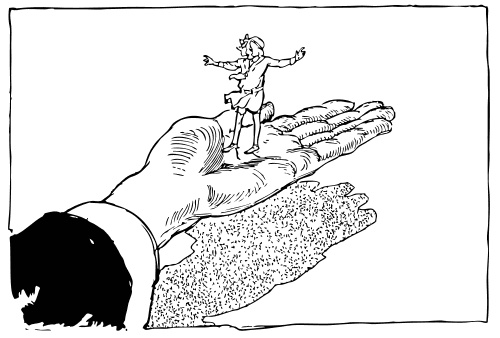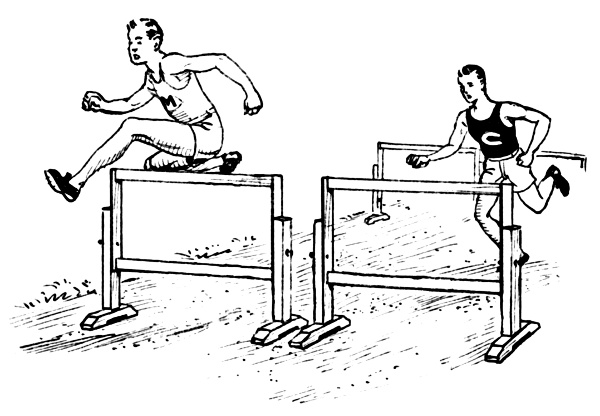 Top Chinese PC maker Lenovo (HKEx: 992) has just announced some impressive results, saying recent acquisitions in Germany and Japan helped to lift its profit 60 percent in its latest fiscal quarter, as revenue rose an equally strong 54 percent. (Earnings announcement) But as a long-time China watcher, my first reaction is: I’ve seen this before, as the company’s results also got a quick boost back in 2006 after its ground-breaking purchase of IBM’s (NYSE: IBM) PC assets, which instantly gave its revenue a major boost with a large new global presence. But history watchers will also remember that honeymoon period was relatively short lived, and Lenovo later suffered big losses and launched a major reorganization after many of IBM’s former clients defected and it couldn’t efficiently run IBM’s overseas operations. So the question now becomes, are we going to see an encore performance of the IBM deal, which would see Lenovo’s fortunes rapidly fall and end with another reorganization; or will it learn from its previous IBM experience and this time do better, perhaps even achieving its goal of overtaking Hewlett-Packard (NYSE: HPQ) to become the world’s largest PC company? Before I gave my answer, let’s take a quick look at the big picture, starting with the latest acquisitions that saw Lenovo purchase German PC maker Medion and take over the PC operations of Japan’s NEC (Tokyo: 6701) last year. The US may have been a difficult labor market for Lenovo, but the challenges there will seem small compared to what it will face in Japan and Germany, the former due to its tradition of companies providing lifetime employment to workers and the latter due to its strong labor unions. Those kinds of labor issues were largely behind the failure of TCL’s (HKEx: 1070) purchase of a French TV maker and the purchase of Siemens’ (Frankfurt; SIEGn) cellphone assets by Taiwan’s BenQ nearly a decade ago. Lenovo was a little smarter this time in Japan, taking over NEC’s PC operations through a joint venture rather than an outright purchase, meaning NEC will remain as a partner to help to run the operation. But TCL also tried the joint venture approach with France’s Thomson, and clearly that didn’t work. In terms of customer defections, I would also expect those to start happening soon. In this case, the defections could be even worse, since Japanese and German consumers and businesses are especially quality conscious, and are unlikely to like the idea that they are buying computers from a Chinese company instead of a German or Japanese one. All that said, look for both of these acquisitions to run into problems, with labor issues likely to flare up in the next year and customer defections to accelerate as corporate purchasing contracts expire. The situation could become worse as many of Lenovo’s recent forays into new product areas are also likely to run into trouble, meaning the company could quickly see its new zooming top and bottom lines start to stumble, setting the stage for yet another reorganization in the next 2-3 years.
Top Chinese PC maker Lenovo (HKEx: 992) has just announced some impressive results, saying recent acquisitions in Germany and Japan helped to lift its profit 60 percent in its latest fiscal quarter, as revenue rose an equally strong 54 percent. (Earnings announcement) But as a long-time China watcher, my first reaction is: I’ve seen this before, as the company’s results also got a quick boost back in 2006 after its ground-breaking purchase of IBM’s (NYSE: IBM) PC assets, which instantly gave its revenue a major boost with a large new global presence. But history watchers will also remember that honeymoon period was relatively short lived, and Lenovo later suffered big losses and launched a major reorganization after many of IBM’s former clients defected and it couldn’t efficiently run IBM’s overseas operations. So the question now becomes, are we going to see an encore performance of the IBM deal, which would see Lenovo’s fortunes rapidly fall and end with another reorganization; or will it learn from its previous IBM experience and this time do better, perhaps even achieving its goal of overtaking Hewlett-Packard (NYSE: HPQ) to become the world’s largest PC company? Before I gave my answer, let’s take a quick look at the big picture, starting with the latest acquisitions that saw Lenovo purchase German PC maker Medion and take over the PC operations of Japan’s NEC (Tokyo: 6701) last year. The US may have been a difficult labor market for Lenovo, but the challenges there will seem small compared to what it will face in Japan and Germany, the former due to its tradition of companies providing lifetime employment to workers and the latter due to its strong labor unions. Those kinds of labor issues were largely behind the failure of TCL’s (HKEx: 1070) purchase of a French TV maker and the purchase of Siemens’ (Frankfurt; SIEGn) cellphone assets by Taiwan’s BenQ nearly a decade ago. Lenovo was a little smarter this time in Japan, taking over NEC’s PC operations through a joint venture rather than an outright purchase, meaning NEC will remain as a partner to help to run the operation. But TCL also tried the joint venture approach with France’s Thomson, and clearly that didn’t work. In terms of customer defections, I would also expect those to start happening soon. In this case, the defections could be even worse, since Japanese and German consumers and businesses are especially quality conscious, and are unlikely to like the idea that they are buying computers from a Chinese company instead of a German or Japanese one. All that said, look for both of these acquisitions to run into problems, with labor issues likely to flare up in the next year and customer defections to accelerate as corporate purchasing contracts expire. The situation could become worse as many of Lenovo’s recent forays into new product areas are also likely to run into trouble, meaning the company could quickly see its new zooming top and bottom lines start to stumble, setting the stage for yet another reorganization in the next 2-3 years.
Bottom line: Lenovo could soon see history repeat, with strong results after 2 recent acquisitions setting the stage for integration difficulties and an eventual reorganization.
Related postings 相关文章:
◙ Lenovo’s TV Gamble: Failure Ahead? 联想电视赌注:未来会失败吗?
◙ TCL Cellphones: History Repeats Itself TCL手机业务历史重演
◙ Lenovo Completes Leadership Change, Yang Uninspired 联想完成高层调整,杨元庆难鼓舞人心

 New data is showing that Hewlett-Packard’s (NYSE: HPQ) share of China’s PC market continued to plummet at the end of last year, a worrisome development for a company that is at once the world’s biggest computer brand but also seems unable to decide on its future direction in a PC market that will soon overtake the US to become the world’s largest. According to the latest data from IDC, HP’s share of the China PC market tumbled to 5.3 percent in the fourth quarter of last year, down from 8.5 percent in the second quarter, which was down from double-digits not long before when the company was one of China’s top players. (
New data is showing that Hewlett-Packard’s (NYSE: HPQ) share of China’s PC market continued to plummet at the end of last year, a worrisome development for a company that is at once the world’s biggest computer brand but also seems unable to decide on its future direction in a PC market that will soon overtake the US to become the world’s largest. According to the latest data from IDC, HP’s share of the China PC market tumbled to 5.3 percent in the fourth quarter of last year, down from 8.5 percent in the second quarter, which was down from double-digits not long before when the company was one of China’s top players. ( China’s business world is fast becoming the land of deja vu, at least from my perspective. Just a day after Apple (Nasdaq: AAPL) snubbed China for a second time by excluding the country from its international launch list for its latest hot product (
China’s business world is fast becoming the land of deja vu, at least from my perspective. Just a day after Apple (Nasdaq: AAPL) snubbed China for a second time by excluding the country from its international launch list for its latest hot product ( The folks at Lenovo (HKEx: 992) are surely celebrating, after the latest numbers showed it zoomed past sputtering Taiwanese PC maker Acer (Taipei: 2353) to take the spot as the world’s third largest PC seller in the second quarter. (
The folks at Lenovo (HKEx: 992) are surely celebrating, after the latest numbers showed it zoomed past sputtering Taiwanese PC maker Acer (Taipei: 2353) to take the spot as the world’s third largest PC seller in the second quarter. ( New signals coming from Lenovo (HKEx: 992) and Taiwan smartphone maker HTC (Taipei: 2498) indicate that both are strongly considering bids in the upcoming auction of Hewlett-Packard’s (NYSE: HPQ) PC business, which also happens to include its much smaller smartphone unit. But whereas HTC’s potential bid looks smart, Lenovo’s apparent position needs some serious rethinking. Let’s start with the simpler case of HTC, whose early bet on smartphones has made it an overnight sensation, propelling it past a struggling Nokia (Helsinki: NOK1V) earlier this year in terms of market value. (
New signals coming from Lenovo (HKEx: 992) and Taiwan smartphone maker HTC (Taipei: 2498) indicate that both are strongly considering bids in the upcoming auction of Hewlett-Packard’s (NYSE: HPQ) PC business, which also happens to include its much smaller smartphone unit. But whereas HTC’s potential bid looks smart, Lenovo’s apparent position needs some serious rethinking. Let’s start with the simpler case of HTC, whose early bet on smartphones has made it an overnight sensation, propelling it past a struggling Nokia (Helsinki: NOK1V) earlier this year in terms of market value. ( The inevitable as finally happened, as China overtook the US in the second quarter of this year to become the world’s biggest PC market both in terms of unit sales and revenue, according to new data from IDC. (
The inevitable as finally happened, as China overtook the US in the second quarter of this year to become the world’s biggest PC market both in terms of unit sales and revenue, according to new data from IDC. ( from that part of China, which has also seen neighboring cities like Xian and Chongqing grow quickly as China offers strong incentives for companies to set up shop in its relatively underdeveloped western interior. As a longtime tech writer, I’ve been particularly impressed with Chengdu, which seems to have a strong ability to attract some of the world’s top-tier technology names to the city with its abundance of college graduates, good transport networks and of course its tasty Sichuan food. Intel (Nasdaq: INTC) was one of the earliest players in the city when it set up a chip manufacturing plant there seven years ago, and Texas Instruments (NYSE: TXN) opened up shop in the city last year when it took over a plant from SMIC (HKEx: 981; NYSE: SMI). Most major PC players have also opened plants there in the last 2-3 years, including both Hewlett Packard (NYSE: HPQ) and Dell (Nasdaq: DELL), (
from that part of China, which has also seen neighboring cities like Xian and Chongqing grow quickly as China offers strong incentives for companies to set up shop in its relatively underdeveloped western interior. As a longtime tech writer, I’ve been particularly impressed with Chengdu, which seems to have a strong ability to attract some of the world’s top-tier technology names to the city with its abundance of college graduates, good transport networks and of course its tasty Sichuan food. Intel (Nasdaq: INTC) was one of the earliest players in the city when it set up a chip manufacturing plant there seven years ago, and Texas Instruments (NYSE: TXN) opened up shop in the city last year when it took over a plant from SMIC (HKEx: 981; NYSE: SMI). Most major PC players have also opened plants there in the last 2-3 years, including both Hewlett Packard (NYSE: HPQ) and Dell (Nasdaq: DELL), (